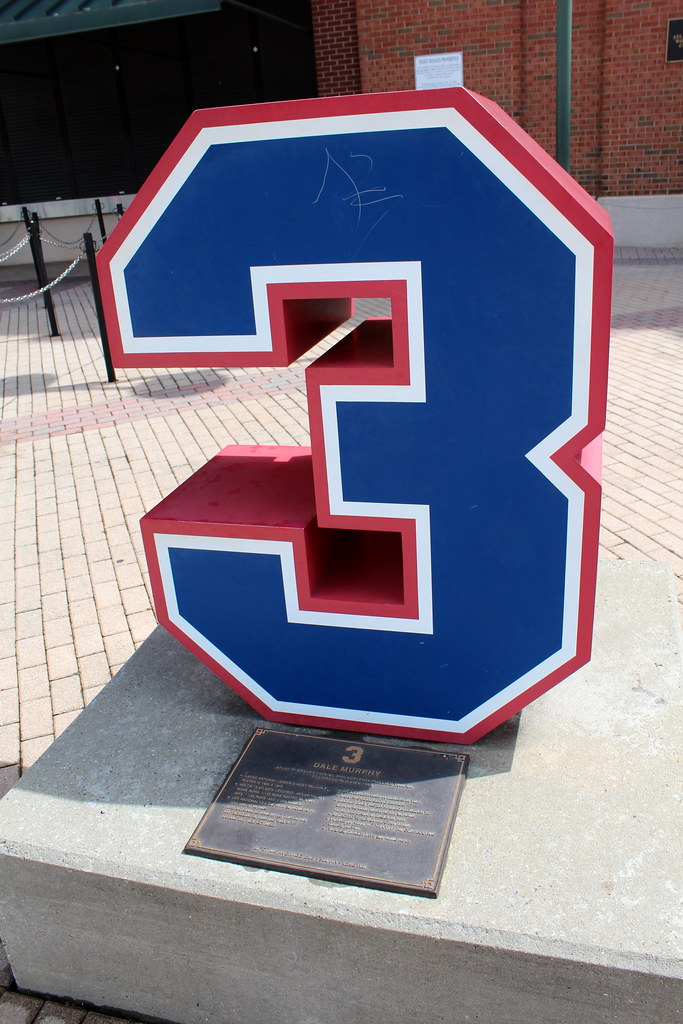Started By
Message

Non-Compete Clauses Would Fix This
Posted on 4/12/25 at 10:36 pm
Posted on 4/12/25 at 10:36 pm
Employment contracts in the business world always include a 12 or 24 month non-compete clause. It doesn’t mean someone can’t leave and take another job. It just means someone can’t take a job in the same industry with a competitor. If these current NIL contracts, which are defacto employment contracts, included non-compete clauses a lot of this shite would stop.
Ok player A, you want to break your NIL contract? You certainly can. But you can’t sign another contract and play with another D-1 school for a full year. You can sit out a year, sign a contract with a team in another division, or sign on to play a different sport. But you can’t sign with another D-1 football program or you will be subject to the conditions and penalties of the contract you signed.
Easy fix to the current problem.
Ok player A, you want to break your NIL contract? You certainly can. But you can’t sign another contract and play with another D-1 school for a full year. You can sit out a year, sign a contract with a team in another division, or sign on to play a different sport. But you can’t sign with another D-1 football program or you will be subject to the conditions and penalties of the contract you signed.
Easy fix to the current problem.
Posted on 4/12/25 at 10:38 pm to captdalton
quote:Unenforceable in right to work states, which all of the SEC minus Missouri are.
Employment contracts in the business world always include a 12 or 24 month non-compete clause.
Posted on 4/12/25 at 10:39 pm to captdalton
quote:
Easy fix to the current problem.
Just stop unlimited transfers and go back to the old rule of sitting out a year if you do transfer. The only players that can transfer and play immediately are graduates and those moving up from lower divisions and JUCO. They can also transfer and play immediately if the coach at their current school is fired, as that's out of their control.
That fixes the problem easily without muddying the waters even more with contracts and contract negotiations.
This post was edited on 4/12/25 at 10:41 pm
Posted on 4/12/25 at 10:41 pm to captdalton
Courts take a very dim view of non-compete clauses especially below the management level. Many ultimately turn out to be unenforceable. Companies still try to get them as a deterrent, but many go unenforced and unchallenged.
Posted on 4/12/25 at 10:43 pm to RazorBroncs
quote:
Just stop unlimited transfers and go back to the old rule of sitting out a year if you do transfer. The only players that can transfer and play immediately are graduates and those moving up from lower divisions and JUCO. They can also transfer and play immediately if the coach at their current school is fired, as that's out of their contro
Sounds good but it’s never going to happen. The NCAA already bent the knee to the DOJ on that issue.
Posted on 4/12/25 at 11:20 pm to Murph4HOF
quote:
Unenforceable in right to work states, which all of the SEC minus Missouri are.
Not completely. For instance in Alabama there are situations when they are enforceable. There are six exceptions where the courts will enforce them. The first is:
quote:
Exception 1: “A contract between two or more persons or businesses or a person and a business limiting their ability to hire or employ the agent, servant, or employees of a party to the contract where the agent, servant, or employee holds a position uniquely essential to the management, organization, or service of the business.”
It would be interesting to see whether a court would deem a starting quarterback to be “uniquely essential”. I am guessing a good lawyer would be pretty persuasive that a starting quarterback is uniquely essential to a football team.
I have never worked for a company that did at least try to enforce non-compete clauses, and that includes in right to work states Alabama, Georgia and Tennessee.
The courts may take a dim view of non-compete clauses, but they are still a valid contracts in certain situations. If someone signs a contract that says if party A does (insert whatever) they will be liable for (insert penalty) it is still a contract, especially if they fall into one of the six exceptions the courts have recognized as being valid and enforceable.
People have been throwing millions at these athletes with absolutely zero way to prevent them from taking the money and then moving on in a year to the next high bidder. People will get tired of this. The free market works two ways and will correct itself one way or another.
Posted on 4/12/25 at 11:25 pm to Murph4HOF
quote:
Unenforceable in right to work states, which all of the SEC minus Missouri are.
Buddy I’m pretty sure a non compete when millions of dollars are changing hands is enforceable.
Jimmy John’s not letting employees work for Subway is not enforceable.
Posted on 4/13/25 at 2:45 am to Freight Joker
quote:Then that would apply to coaches as well, correct? And not just the HC, but put it in for the Coordinators and Assistant Coaches. RIP in Peace Coaching Changes board.
Buddy I’m pretty sure a non compete when millions of dollars are changing hands is enforceable.
And what would a non-compete clause look like anyways for NIL?
If the Athens GM dealer is paying a kid for his NIL, is their competition the Athens Ford dealer or the Norman GM dealer? An argument can be easily made that the Lamborghini dealer in Austin isn't competing with an injury law firm in Tuscaloosa.
This post was edited on 4/13/25 at 2:47 am
Posted on 4/13/25 at 6:25 am to captdalton
quote:Not enforceable in many cases and don't expect anything that might put the NCAA at risk for more lawsuits. They are happy as a lark watching college sports get ruined. They have the spine of an ameoba.
Non-Compete Clauses Would Fix This
Posted on 4/13/25 at 6:28 am to captdalton
Non-competes have taken nearly as severe a beating as the NCAA in the courts.
This won't do it unless you have collective bargaining.
This won't do it unless you have collective bargaining.
Posted on 4/13/25 at 6:45 am to captdalton
They are not employees, yet. I'm no lawyer, but I don't think non-compete would work. USSC says they own their own NIL and can sell or promote themselves as they see fit. They would be asked to not compete against themselves?
A player could promote Pizza Hut or Pappa Johns if he can get the gig from both or more. HOWEVER, If I'm Pizza Hut, and I sign a player to promote me, then I have him sign exclusivity rights that he only promotes my Pizza Hut pizza. He can go sell cars or trucks, or whatever, but when it comes to pizza, it will be Pizza hut only.
I suggest that the only thing that could be done is to sign the player to multi-year exclusivity of all promotion and to have buy out clauses if a player leaves. Serious player would have a lawyer that would kill this right away, or the value of contract would be tremendous.
In real life I think things will move to one year exclusivity contracts with player option to go promotte Pizza Hut or cars, etc. Only the University interviews for $10,000.00/minute with a not to exceed value will be in the University contract. Minutes of interview beyond not to exceed number would be at player cost and would be solely to promote the players image with the public.
A player could promote Pizza Hut or Pappa Johns if he can get the gig from both or more. HOWEVER, If I'm Pizza Hut, and I sign a player to promote me, then I have him sign exclusivity rights that he only promotes my Pizza Hut pizza. He can go sell cars or trucks, or whatever, but when it comes to pizza, it will be Pizza hut only.
I suggest that the only thing that could be done is to sign the player to multi-year exclusivity of all promotion and to have buy out clauses if a player leaves. Serious player would have a lawyer that would kill this right away, or the value of contract would be tremendous.
In real life I think things will move to one year exclusivity contracts with player option to go promotte Pizza Hut or cars, etc. Only the University interviews for $10,000.00/minute with a not to exceed value will be in the University contract. Minutes of interview beyond not to exceed number would be at player cost and would be solely to promote the players image with the public.
This post was edited on 4/13/25 at 6:49 am
Posted on 4/13/25 at 6:51 am to Victor R Franko
Non competes have been completely shredded by multiple state judicial systems. The FTC nearly banned them outright last year.
Posted on 4/13/25 at 7:04 am to Victor R Franko
We can argue the semantics of what a non-compete clause is, where it applies and if it is enforeceable.
Theoretically this is about paying a player for the use of their name/image/likeness. In reality everyone is paying players to play for a certain school.
If these NIL contracts contained language that a player had to remain at university A for X number of years or the player would have to pay back his NIL package then players would think very hard about leaving. Maybe non-compete is the incorrect term, maybe it would be closer to a buyout. This type language is already included in most if not all coaching contracts. If the school fires the coach without cause the school owes him X. If the coach breaks his contract and leaves early he owes the university X. Please tell me why this would not help? I get that players would rather not be limited. But if it became the norm they would.
Even if we pretend this is really about NIL and not pay to play, it is still easy to rationalize. Player A, a Georgia Bulldog, has a lot of marketing value for the Athens Ford dealership. If that player transfers the next season to Tennessee, that player would be hated by Georgia fans and would be a liability for Athens Ford. Why shouldn’t they get a refund? The contract they signed and the money they spent was spent on a Georgia player, not a Tennessee player.
Theoretically this is about paying a player for the use of their name/image/likeness. In reality everyone is paying players to play for a certain school.
If these NIL contracts contained language that a player had to remain at university A for X number of years or the player would have to pay back his NIL package then players would think very hard about leaving. Maybe non-compete is the incorrect term, maybe it would be closer to a buyout. This type language is already included in most if not all coaching contracts. If the school fires the coach without cause the school owes him X. If the coach breaks his contract and leaves early he owes the university X. Please tell me why this would not help? I get that players would rather not be limited. But if it became the norm they would.
Even if we pretend this is really about NIL and not pay to play, it is still easy to rationalize. Player A, a Georgia Bulldog, has a lot of marketing value for the Athens Ford dealership. If that player transfers the next season to Tennessee, that player would be hated by Georgia fans and would be a liability for Athens Ford. Why shouldn’t they get a refund? The contract they signed and the money they spent was spent on a Georgia player, not a Tennessee player.
Posted on 4/13/25 at 7:12 am to jonnyanony
quote:
The FTC nearly banned them outright last year.
quote:
The Federal Trade Commission described the rule as banning non-compete agreements. However, the rule did make a few exceptions to the ban, for example, when a non-compete clause is entered into pursuant to a bona fide sale of a business entity. Following the issuance of the rule, a federal court entered an order striking down the rule reasoning that issuance of the rule was beyond the authority of the Federal Trade Commission. As of the writing of this note, the Federal Trade Commission is considering whether to appeal the decision. The federal court order did not prohibit the Federal Trade Commission from addressing non-competes on a case-by-case basis.
They tried. A court slapped them down for the most part saying they did not have the authority to issue such a rule.
FTC’s Rule Banning Non-compete Clauses Struck Down
quote:
The Federal Trade Commission’s (“FTC”) efforts to ban non-compete agreements was significantly curtailed when a federal judge in Texas, on August 20, 2024, issued a nationwide injunction, finding the FTC’s ban on non-compete agreements unlawful.
On April 23, 2024, the FTC passed a final rule to ban most non-compete clauses in employment agreements, finding such agreements to be unfair methods of competition (the “FTC Rule”). The FTC Rule was slated to have an effective date of September 4, 2024.
However, on August 20, 2024, the United States District Court for the Northern District of Texas granted summary judgment to the plaintiff in Ryan LLC v. FTC, enjoining the FTC from implementing and enforcing its Rule. As a consequence of this decision, the FTC Rule will not take effect and cannot be enforced for the foreseeable future.
Posted on 4/13/25 at 9:25 am to captdalton
quote:
I have never worked for a company that did at least try to enforce non-compete clauses, and that includes in right to work states Alabama, Georgia and Tennessee.
Without a doubt. I've signed a few, right in those states.
Posted on 4/13/25 at 11:53 am to captdalton
quote:
Maybe non-compete is the incorrect term
Correct. The provision is typically referred to as a "clawback". You don't honor the contract, you have to pay back monies already advanced.
The negativity surrounding non-competes stems from the fact that it limits the ability of the (typically) employee to earn a living in their line of work.
A clawback simply says...you agreed to do this, we paid you to do that, you didn't do it, pay the money back. No issues between two contracting parties.
Popular
Back to top
 6
6










